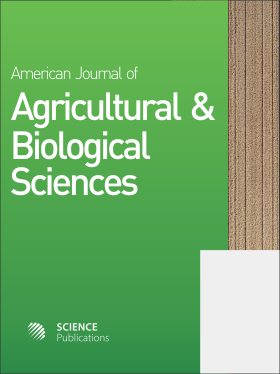Petroleum Hydrocarbon Pollution of Mangrove Swamps: The Promises of Remediation by Enhanced Natural Attenuation
- 1 Department of Biotechnology, Enzymes and Genetics Division, Federal Institute of Industrial Research, Oshodi, PMB 21023, Ikeja, Lagos, Nigeria
- 2 Department of Microbiology, Faculty of Science, University of Port Harcourt, PMB 5323, Port Harcourt, Nigeria
- 3 Department of Microbiology, Faculty of Biological and Physical Sciences, Abia State University, PMB 2000, Uturu, Abia State, Nigeria
Abstract
Problem statement: The Remediation by Enhanced Natural Attenuation (RENA) is currently being used as a cleanup technology in polluted environments in the Niger Delta and other parts of the globe. The effectiveness of RENA as a remediation technology in the most recent time has been challenged by few authorities. The deleterious effects of pollutants on the environment have led to increased awareness and vigilance against contamination of the Niger Delta environment. Bio remediation which has been defined as biological response to environmental abuse has continued to receive research attentions across the globe. This study addresses issues against the RENA and recommended ways forward. Approach: The review paper studied published articles and Oil companies routine practices of managing petroleum hydrocarbon polluted Environments including mangrove swamps from 1970 till date. The Remediation by Enhanced Natural Attenuation (RENA) is currently being used as a cleanup technology in polluted environments in the Niger Delta including mangrove ecosystems. Results: The study made inputs on the controversial issues around RENA technology and recommended certain ways forward. This revision also reported the ways of managing the concerns raised against RENA. Conclusion/Recommendations: Oil firms, remediation contractors and consultants using this RENA approach should employ strict monitoring during the process and also adhere strictly to standard practices and the mitigation measures for all the cases against RENA as documented in this review study. This is to ensure the achievement of Sustainable Development.
DOI: https://doi.org/10.3844/ajabssp.2012.207.216

- 4,482 Views
- 8,515 Downloads
- 21 Citations
Download
Keywords
- Remediation by Enhanced Natural Attenuation (RENA)
- Polycyclic Aromatic Hydrocarbons (PAHs)
- Niger Delta Development Commission (NDDC)
- Total Petroleum Hydrocarbon (TPH)
- Plant Growth Promoting Bacteria (PGPB)
